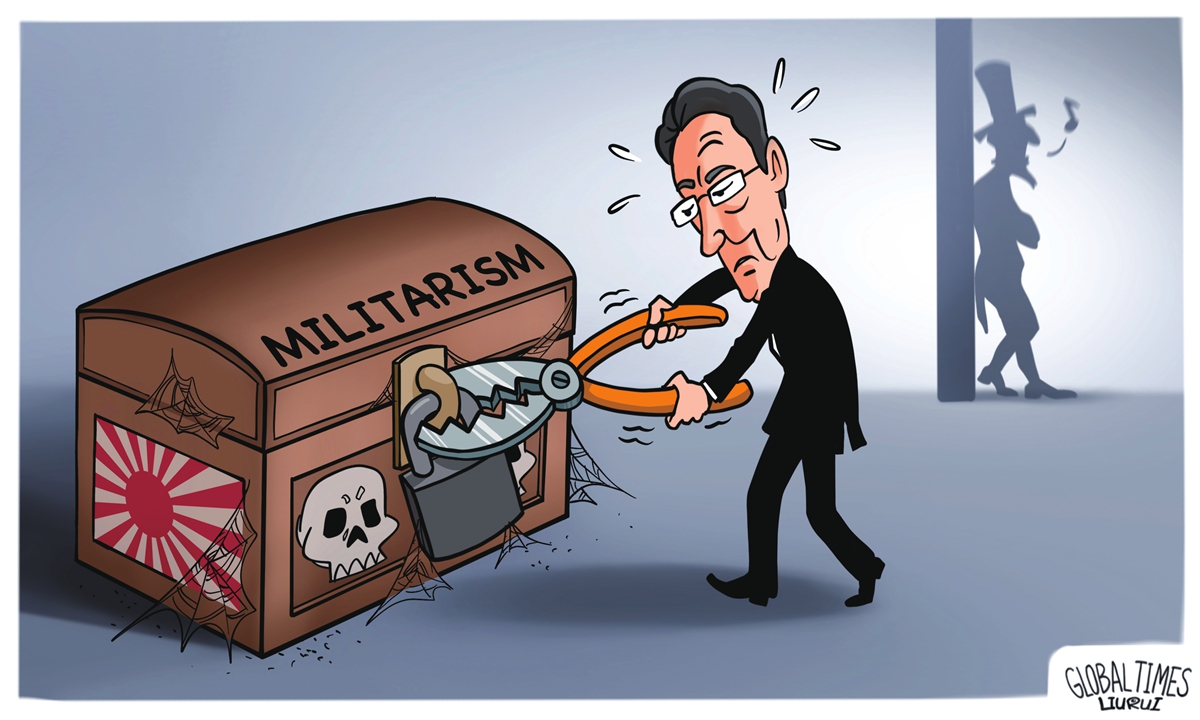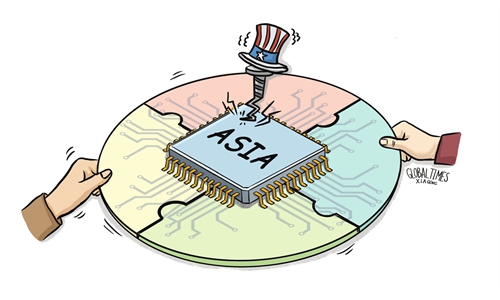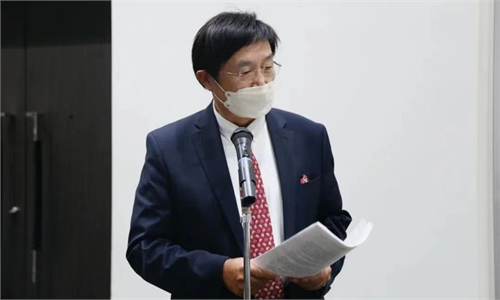
Be careful what you wish for. Illustration: Liu Rui/GT
This August 15 marks the 77th anniversary of Japan's defeat and unconditional surrender in World War II (WWII). However, 77 years later, more and more countries in the Asia-Pacific region are witnessing Japan's expanding military, and are concerned that Japan may go back to militarism.
On Saturday, Japan's industry minister Yasutoshi Nishimura became the first member of Prime Minister Fumio Kishida's cabinet to visit the Yasukuni Shrine, in which 14 WWII Class-A war criminals with heinous crimes are honored.
In fact, influenced by the conservatization at home, Tokyo has been trying to enhance the country's military capabilities in various ways in recent years.
In addition to seeking a significant increase in military spending, Tokyo has been attempting to revise its pacifist constitution, which would transform its Self-Defense Forces into military forces in a true sense that it can use force even when not being attacked. On the other hand, Japan has been easing its weapons export restrictions and breaking the Three Non-Nuclear Principles of not possessing, producing, and permitting the introduction of nuclear weapons.
Spurred by the US Indo-Pacific Strategy, Japan seems to be gradually abandoning the pacifist path. Once the Pandora's box of strengthening Japan's military power is opened, the consequences would be unimaginable and pose a severe threat to regional peace and stability.
But Japan is still trying desperately to avoid facing up to the heinous crimes its military committed against many countries in the Asia-Pacific region during WWII.
"The war of aggression launched by Japanese militarism has inflicted untold sufferings in the victimized countries in Asia, and left people there with indelible painful memories. Over the past decades, the international community has been watching whether Japan will show a sincere and correct understanding of that history. Several decades on, Japan still owes an explicit explanation to its Asian neighbors, including China," said Zhao Lijian, a spokesperson of China's Foreign Ministry, on the 80th anniversary of Japan's attack on Pearl Harbor in December last year.
Instead of showing enough self-reflection to the world, particularly to the victims of its aggression in WWII, Tokyo keeps distorting and whitewashing its historical mistakes. What's more absurd is that Japan, as an aggressor of the war, tends to act as a "victim" due to the two atomic bombs dropped on its territory to end the war. All these shameless attitudes and actions have undoubtedly left neighboring countries extremely wary of the Japanese government's ambition for a stronger military force.
According to Song Zhongping, a Chinese military expert and TV commentator, Japan is repeating the same mistakes because it doesn't recognize its historical problems. "Japan doesn't have the courage to take responsibility for its horrifying, wicked conduct in WWII. Such a coward-like behavior proves how diffident the country is in itself," he said.
Washington has also played the role of an accomplice in Japan's indifference to acknowledging its historical mistakes and the current act of playing with fire. Due to a geopolitical short-sightedness, the US has put its strategic goals over the need to hold Japan accountable for all its inhumane practices in WWII.
Song believes that since Washington wants to unite Tokyo to confront Beijing, it has chosen to turn a blind eye to Japan's refusal to introspect. Instead, it connives at Japan's attempts to turn back the wheel of history. Moreover, the US is actually breeding evil, as there are even voices in the US urging Japan to arm itself.
In the face of Tokyo's growing militarization ambition, countries in the Asia-Pacific region should spare no effort to prevent Japan from continuing down the wrong path. They need to urge Japan to accept the truth of history and truly learn its lessons from its past aggression.
At the same time, we should also warn Tokyo to stop following Washington's lead to provoke Beijing and disrupt the regional situation. China is not the country it was 77 years ago, and Japan's provocations will only lead it to be hoisted by its own petard.


